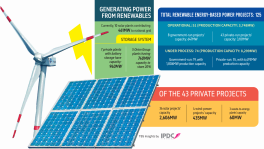Bangladesh yet to meet minimum standards to eliminate human trafficking: US report
The government identified 1,138 potential trafficking victims, a significant decrease from 6,866 in the previous reporting period

Although Bangladesh has made praise-worthy strides in combatting human trafficking, it lags behind in key areas, including having adequate victim protection measures, according to the the US State Department's Trafficking in Persons (TIP) report.
Bangladesh placed in "Tier 2" for the third consecutive year, as the government had not fully met the minimum standards for the elimination of trafficking.
The "2022 Trafficking in Persons Report", however, praised the government's "significant" efforts to this end.
"The government demonstrated overall increasing efforts compared to the previous reporting period, considering the impact of the Covid-19 pandemic on its anti-trafficking capacity. Therefore, Bangladesh remains on Tier 2," said the 2022 TIP report released on Tuesday.
"These efforts included increasing investigations, prosecutions, and convictions against human traffickers, including upholding the dismissal of a member of parliament involved in a labour trafficking case," said the report that covers 188 countries, including the US.
The annual report ranks governments based on their perceived efforts to acknowledge and combat human trafficking.
It ranks countries in three tiers. Countries assessed as meeting the Trafficking Victims Protection Act of 2000 or TVPA's minimum standards for the elimination of trafficking are placed on Tier 1.
The countries which do not meet the minimum TVPA standards but make efforts are placed on Tier 2.
In 2020, 2021 and this year, Bangladesh has been ranked among the countries on Tier 2.
The countries which do not meet the minimum TVPA standards and do not make any effort to do so are placed in Tier 3.
Bangladesh's south Asian neighbours India, Pakistan, Nepal, Maldives are also in the Tier 2, while Bhutan is in the Tier 2 watch list and Afghanistan in Tier 3.
About Bangladesh, the latest report mentioned that in August 2021, the seven anti-trafficking tribunals resumed operations and the Rangpur and Rajshahi tribunals became the third and fourth courts to record trafficking convictions.
"The government also ratified the protocol to the ILO's forced labour convention as part of efforts against forced labour. However, the government did not meet the minimum standards in several key areas," read the report.
It said that Bangladesh identified fewer potential victims than in the previous reporting period and maintained severely inadequate victim protection, especially for Bangladeshi trafficking victims identified overseas.
The government identified 1,138 potential trafficking victims, a significant decrease from 6,866 in the previous reporting period; however, the government did not report details of this number and, in the past, had included smuggled migrants in the overall number, says the report.
In comparison, NGOs and international organisations reported identifying at least 580 sex trafficking victims, 6,378 labor trafficking victims, and 717 victims of unspecified exploitation.
"The government did not uniformly employ standard operating procedures (SOPs) to identify trafficking victims among vulnerable populations, resulting in the penalisation of some returning migrant workers and potential sex trafficking victims. In addition, the government pursued policy changes that would force potential labour trafficking victims to go through civil arbitration prior to initiating criminal investigations," it further read.
The government continued to allow recruitment agencies to charge high recruitment fees to migrant workers and did not consistently address sub-agents conducting illegal recruitment operations, leaving workers vulnerable to trafficking, the report noted.
Regarding Rohingyas, it said that Bangladesh did not sufficiently investigate and prosecute trafficking cases involving the exploitation of Rohingya refugees.
The report made some recommendations including increasing prosecutions and seeking convictions for trafficking crimes, particularly of labour traffickers and complicit government officials, while respecting due process.
"Now, the goal [for Bangladesh] is to be in Tier-1. We always encourage the Bangladesh government to strongly consider recommendations that we put at the top of the report," said a female official, asking not to be named at a background briefing on the TIP report by the US embassy in Dhaka last week.
Regarding the consequences for a country moving down from Tier 2 to Tier 3, an embassy official said, "A country that moves downward faces automatic cut-off in millions of dollars of assistance. It does not impact humanitarian assistance and certain trade-related assistance, but very dramatically cuts the amount of money the US can provide."
Bangladesh's first Trafficking In Persons Report Hero announced
Mohammed Tariqul Islam, a Bangladeshi anti-trafficking organiser, has been recognised as a Trafficking In Persons (TIP) Report Hero by the US Department of State.
He is the first Bangladeshi who received such a recognition, according to the US embassy in Dhaka.
US Secretary of State Antony Blinken honoured a total of six individuals from around the world as 2022 TIP Report Heroes in a gala event in Washington DC on Tuesday (19 July).
The TIP Heroes award honours individuals who demonstrate an exceptional commitment to fighting human trafficking.
"Tariqul Islam is a tireless advocate for victims of human trafficking whose work has helped increase the Bangladesh government's capacity to investigate and prosecute traffickers," reads the latest TIP report.


 Keep updated, follow The Business Standard's Google news channel
Keep updated, follow The Business Standard's Google news channel
















